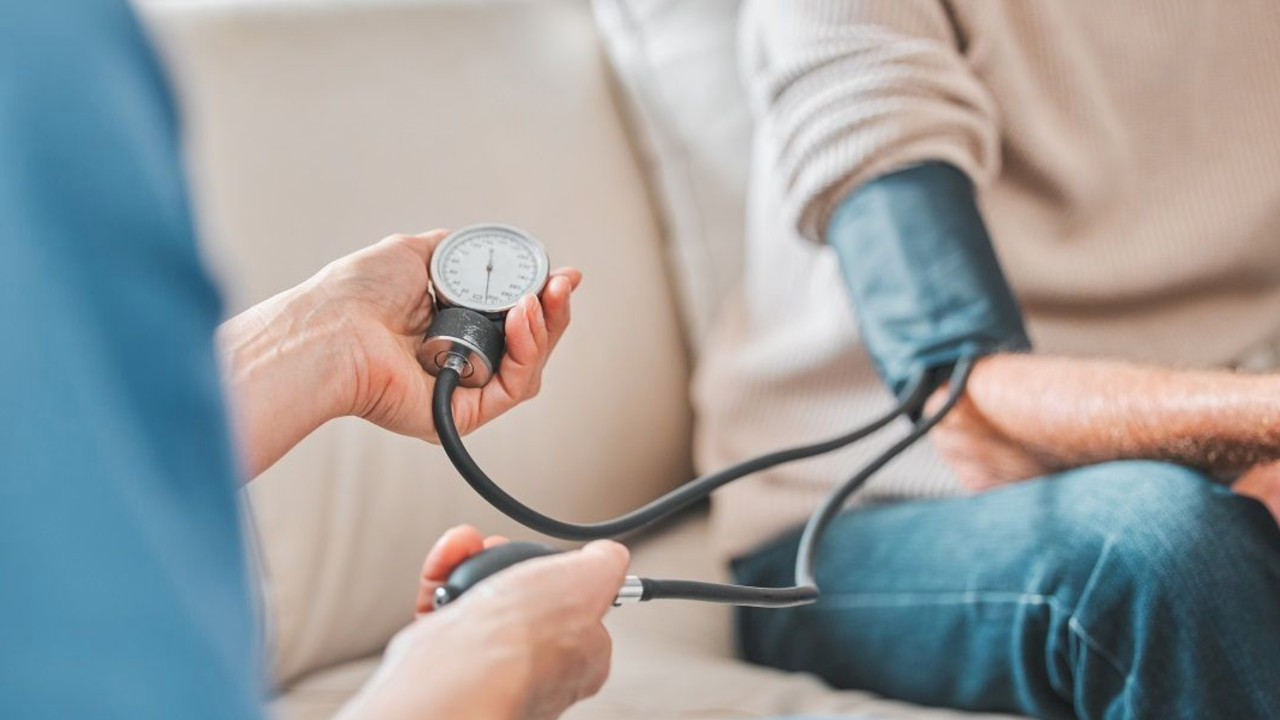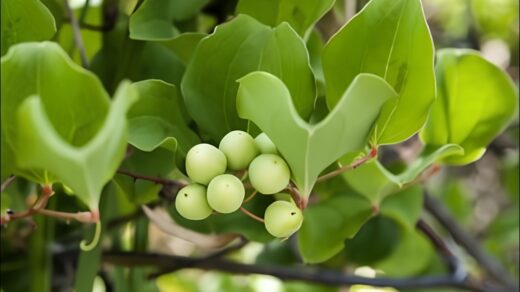Top 10 Ayurvedic Remedies for Managing Hypertension Naturally
High Blood Pressure, commonly known as Hypertension, is referred to in Ayurveda as Rakta Gata Vata or sometimes simply as Rakta Vata. It is a condition where there is an abnormal increase in the force of blood being pumped through the arteries by the heart. This continuous pressure on the arterial walls disrupts the natural rhythm and balance of the circulatory system.
According to Ayurvedic principles, this condition arises due to the vitiation of Vata dosha in the blood channels (Rakta Vaha Srotas). If left unaddressed, it can lead to deeper imbalances affecting the heart (Hridaya), mind (Manas), and overall vitality (Ojas).
The Role of the Heart in Circulation
According to both modern science and Ayurveda, the heart’s primary duty is to pump oxygen-rich blood into the arteries, which deliver nourishment to all the organs. After circulating through the body, blood returns to the heart for another round—completing a full circuit within approximately 15 seconds in a healthy individual.
With every heartbeat, blood surges through the arteries. However, if there is a disturbance in the arteries, such as arteriosclerosis (hardening or narrowing due to deposits), the natural flow is obstructed.
What Happens When Arteries Are Compromised?
In such cases, the arteries lose their flexibility and are unable to accommodate the normal volume of blood required for optimal circulation. As a result:
- The heart is forced to work harder, pumping with greater intensity.
- This increased effort raises the pressure against the walls of the arteries.
- Over time, this excess pressure manifests as high blood pressure.
Ayurveda views this condition as a vitiation of Vata dosha in the Rakta Dhatu (blood tissue), affecting the srotas (channels) and disturbing the normal function of the circulatory system.
Ayurvedic View on High Blood Pressure
In both modern science and Ayurveda, high blood pressure—known as Rakta Gata Vata in Ayurvedic texts—is a serious condition that affects the proper flow of Rakta Dhatu (blood) through the srotas (channels) of the body. It occurs when the force of blood against the arterial walls remains consistently elevated, placing excess strain on the heart and circulatory system.
What Is High Blood Pressure?
From a physiological perspective, blood pressure measures the force with which the heart pumps blood through the arteries. When this force is persistently high, it makes the heart work harder and can lead to complications like atherosclerosis (hardening of arteries), heart failure, or other cardiovascular disorders.
In Ayurvedic understanding, this excessive pressure can arise due to vitiation (imbalance) of Vata dosha, often along with disturbances in Pitta and sometimes Kapha, depending on the individual’s constitution (Prakriti) and lifestyle habits.
Ayurvedic Causes of High Blood Pressure
In Ayurveda, high blood pressure is primarily caused by an imbalance in Vata and Pitta doshas, along with blocked channels (Srotorodha) and mental stress.
1. Imbalance of Vata Dosha
Vata governs movement in the body, including blood circulation. When aggravated by factors like stress, irregular routines, or excessive activity, Vata can disturb the rhythmic flow of blood, increasing arterial tension.
2. Pitta Aggravation
Pitta is responsible for heat and transformation. Excessive intake of spicy, salty, oily, or sour foods, along with suppressed anger or stress, can provoke Pitta, leading to inflammation in the vessels and heightened blood pressure.
3. Strotorodha (Obstruction in Channels)
Narrowing or hardening of arteries, known as strotorodha, prevents the free flow of blood, leading to increased pressure. This can be caused by ama (toxins), poor digestion, and sedentary habits.
4. Medo Dhatu Imbalance (Fat Tissue Disturbance)
An imbalance in Medo Dhatu, or the fat tissue, can result in high cholesterol, obesity, and sluggish metabolism, contributing to hypertension. This reflects the involvement of Kapha dosha in some cases.
5. Manasika Hetu (Mental Causes)
Emotional stress, anxiety, fear, and unresolved anger are known to aggravate both Vata and Pitta, disrupting heart function and elevating blood pressure. Ayurveda places great emphasis on the mind-body connection in managing such disorders.
6. Other Contributing Factors
- Overconsumption of salty and fried foods
- Irregular sleep and waking hours
- Lack of physical activity
- Suppression of natural urges (like urination, sleep, hunger)
- Excessive alcohol or caffeine
- Genetic predisposition (Prachin Karma and hereditary factors)
Ayurvedic Perspective on Management
Although high blood pressure is often considered a long-term condition, Ayurveda believes it can be managed and often prevented through Ahara (diet), Vihara (lifestyle), Aushadhi (herbal therapy), and Manasika shanti (mental peace). Regular detoxification, a dosha-specific diet, yoga, pranayama, and calming herbal remedies help restore balance and promote long-term heart health.
In Ayurveda, prevention is key. Living in harmony with your body’s constitution and natural rhythms helps maintain balance, preventing diseases like hypertension before they begin.
Ayurvedic Diet for High Blood Pressure: What to Eat & Avoid
Ayurveda, the ancient Indian system of medicine, emphasizes that dietary habits play a crucial role in maintaining balance among the doshas—Vata, Pitta, and Kapha. When it comes to managing high blood pressure (hypertension), Ayurvedic principles recommend specific dietary changes to help restore this inner balance and support cardiovascular health.
The Goal: Balance the Doshas
In Ayurveda, high blood pressure is often linked to an imbalance in the Pitta and Vata doshas. A calming, nourishing diet that avoids stimulants and includes natural, cooling, and heart-supporting foods is key to achieving equilibrium.
Foods to Include
1. Vegetables
Ayurveda recommends including cooling and nourishing vegetables that help lower blood pressure and reduce Pitta aggravation:
- Parsley – Supports kidney function and acts as a mild diuretic.
- Bitter Gourd (Karela) – Detoxifies the blood and supports sugar balance.
- Drumsticks (Moringa pods) – Rich in antioxidants and minerals.
- Garlic – A natural blood thinner and heart protector.
2. Fruits
Fresh fruits that are sweet, hydrating, and high in potassium are especially beneficial:
- Grapes – Cooling and rejuvenating.
- Bananas – High in potassium, helps lower blood pressure.
- Watermelon – Hydrating and soothing to Pitta.
- Guavas – High in fiber and vitamin C, supports heart health.
3. Dairy Products
Certain dairy products are considered beneficial for calming Pitta and nourishing the body:
- Cottage Cheese (Paneer)
- Clarified Butter (Ghee)
- Milk – Best taken warm and spiced with cardamom or turmeric.
These foods help nourish the tissues, cool the system, and support cardiovascular health in a gentle, holistic way.
Foods to Avoid
1. Animal Products
- Red Meat and Eggs are considered aggravating to both Pitta and Vata and should be completely avoided during blood pressure management. These foods are heavy, heating, and may disrupt doshic balance.
2. Caffeine
- Coffee and other caffeine-rich items overstimulate the nervous system and can cause blood pressure spikes. Ayurveda advises reducing or eliminating caffeine to maintain calm and balance.
3. Salt & Grains
- Reduce salt intake—especially table salt—as it retains water and increases pressure in the arteries.
- Limit cereals and pulses, especially those that are heavy and difficult to digest, as they can contribute to sluggish digestion and doshic imbalance.
Top 10 Ayurvedic Herbs for High Blood Pressure
High blood pressure (hypertension) is one of the most common lifestyle-related health concerns today. Ayurveda, the ancient Indian system of medicine, offers a natural approach to managing blood pressure using herbs that support heart health, reduce stress, and promote better circulation.
Here are 10 Ayurvedic herbs known for their effectiveness in helping manage high blood pressure—along with their key benefits and how to use them.
1. Arjuna (Terminalia arjuna)
Arjuna is a revered herb in Ayurveda for cardiovascular health. It strengthens the heart muscles, improves circulation, and helps regulate blood pressure. Arjuna bark is rich in antioxidants and compounds that support the proper functioning of the heart.
- Benefits: Supports heart function, reduces high BP, improves circulation.
- How to Use: Take as a powder (1–3g daily) or in capsule form. A decoction made by boiling the bark in water is also commonly used.
2. Ashwagandha (Withania somnifera)
Ashwagandha is a powerful adaptogen that helps the body cope with stress, a major contributor to high blood pressure. It balances cortisol levels, calms the nervous system, and enhances overall vitality.
- Benefits: Reduces stress and anxiety, lowers cortisol, helps manage stress-induced hypertension.
- How to Use: Use powder (½–1 tsp) in warm milk or water, or take as capsules twice daily.
3. Brahmi (Bacopa monnieri)
Brahmi is a soothing herb for the brain and nervous system. It improves mental clarity, reduces anxiety, and supports relaxation—all of which contribute to stable blood pressure levels.
- Benefits: Calms the mind, reduces anxiety, helps regulate BP.
- How to Use: Consume as tea, tincture (30–60 drops), or in capsule form (300–500 mg/day).
4. Sarpagandha (Rauwolfia serpentina)
Sarpagandha has been traditionally used for its direct impact on high blood pressure. It contains reserpine, a compound known to lower blood pressure by calming the nervous system and dilating blood vessels.
- Benefits: Lowers BP, reduces heart rate, sedative effects.
- How to Use: Take under medical supervision due to its potency. Available in tablets or decoction form.
5. Jatamansi (Nardostachys jatamansi)
Jatamansi is a natural tranquilizer and anti-stress herb. It promotes deep sleep, calms the mind, and helps in reducing elevated blood pressure due to stress and insomnia.
- Benefits: Soothes the nervous system, reduces anxiety and tension.
- How to Use: Use as powder (1–2g daily), make a tea, or apply essential oil for aromatherapy.
6. Gotu Kola (Centella asiatica)
Gotu Kola enhances circulation and is often used to rejuvenate the brain and nervous system. It can help reduce anxiety and improve mental balance, both of which are essential in managing hypertension.
- Benefits: Improves circulation, reduces mental stress, supports healthy BP.
- How to Use: Brew as a tea, take as tincture, or in capsules (500 mg/day).
Punarnava is a natural diuretic that supports kidney function and reduces fluid retention, a common contributor to high blood pressure. It’s especially helpful for those experiencing swelling or water imbalance.
- Benefits: Reduces water retention, lowers blood pressure naturally.
- How to Use: Take as a decoction (5–10 ml twice a day) or powder (1–2g).
8. Moringa (Moringa oleifera)
Moringa is a superfood packed with nutrients and antioxidants. It helps regulate blood pressure, lowers cholesterol, and supports heart health.
- Benefits: Lowers BP and cholesterol, reduces oxidative stress.
- How to Use: Add the leaf powder to smoothies, take as capsules (1–2g/day), or consume fresh leaves.
9. Garlic (Lashuna)
Garlic is a well-known home remedy for cardiovascular health. It helps dilate blood vessels, improve circulation, and lower both blood pressure and cholesterol levels.
- Benefits: Natural blood thinner, lowers cholesterol, reduces BP.
- How to Use: Eat 1–2 raw cloves daily on an empty stomach or use capsules (500–1000 mg).
10. Tulsi (Holy Basil)
Tulsi, also known as Holy Basil, is considered a sacred plant in India and is a powerful adaptogen. It calms the mind, supports the immune system, and helps reduce stress-induced blood pressure spikes.
- Benefits: Reduces stress, balances cortisol, supports overall heart health.
- How to Use: Drink as tea 2–3 times a day, chew fresh leaves, or use in capsule form.
(FAQs)
1. How to control high BP with Ayurveda?
Ayurveda helps control high blood pressure through a combination of herbal remedies, a dosha-balancing diet, stress reduction techniques like yoga and pranayama, and lifestyle changes that promote calmness and circulation.
2. What is the fastest way to cure high blood pressure naturally?
While there’s no “instant” cure, the fastest natural relief comes from combining a low-sodium diet, stress-free routines, daily walking, deep breathing, and Ayurvedic herbs like Arjuna, Ashwagandha, and Brahmi.
3. Which herb is best for high blood pressure?
Arjuna is one of the most effective Ayurvedic herbs for heart health and blood pressure. Others like Sarpagandha, Ashwagandha, and Jatamansi also support healthy BP levels.
4. Does Vata cause high blood pressure?
Yes. According to Ayurveda, an aggravated Vata dosha—especially when combined with Pitta—can disrupt blood flow, increase tension in the arteries, and lead to high blood pressure (Rakta Gata Vata).
5. What is a permanent solution for high BP?
A long-term solution involves balancing the doshas through proper diet, regular exercise, stress management (meditation, yoga), herbal support, and daily Ayurvedic routines tailored to your constitution (Prakriti).
6. Which fruits decrease blood pressure?
Fruits like bananas, guavas, grapes, pomegranates, and watermelons are excellent for managing high BP. They are hydrating, rich in potassium, and soothing to Pitta and Vata doshas.
7. How can I lower my blood pressure permanently?
Adopt a holistic lifestyle: follow an Ayurvedic diet, reduce salt and caffeine, practice yoga, take calming herbs, get adequate sleep, and avoid mental stress. Consistency is key for lasting results.
8. Does Ashwagandha reduce blood pressure?
Yes. Ashwagandha is a natural adaptogen that calms the nervous system, reduces cortisol (stress hormone), and helps lower blood pressure, especially when stress is a major trigger.
9. Which yoga is good for high blood pressure?
Gentle, restorative poses like Shavasana (Corpse Pose), Vajrasana (Thunderbolt), Bhramari Pranayama, and Anulom Vilom are highly recommended for calming the mind and balancing blood pressure.
10. Is lemon good for high blood pressure?
Yes. Lemon is rich in vitamin C and antioxidants that improve blood vessel flexibility and reduce inflammation, making it beneficial for lowering blood pressure when used moderately.
11. Is beetroot good for high blood pressure?
Absolutely. Beetroot contains nitrates that naturally dilate blood vessels, improving circulation and reducing BP. It’s also cooling and beneficial for Pitta-related hypertension.
12. Does Amla reduce high blood pressure?
Yes. Amla (Indian Gooseberry) is a Rasayana (rejuvenative) herb in Ayurveda that supports heart health, lowers cholesterol, and helps control blood pressure thanks to its high antioxidant content.
High blood pressure, though common in today’s fast-paced world, is not an inevitable part of life. Ayurveda teaches that every imbalance in the body has a root cause—whether it lies in the mind, diet, or lifestyle—and by gently addressing these factors, true healing can begin.

























Natural food is better than medicine if you won’t have problem you have to get medical attention and your high Blood Pressure can be reduced by using such herbal medicines which have no side effects and precautions must be taken to avoid getting further problems..!
Really informative article. I wish more people realize that natural foods and herbs can prevent disorders such as hypertension which is a thousand times better than treating them with drugs.
Persistent hypertension, or high blood pressure, is common in obese people because the total length of their blood vessels is relatively greater than that in thinner individuals.